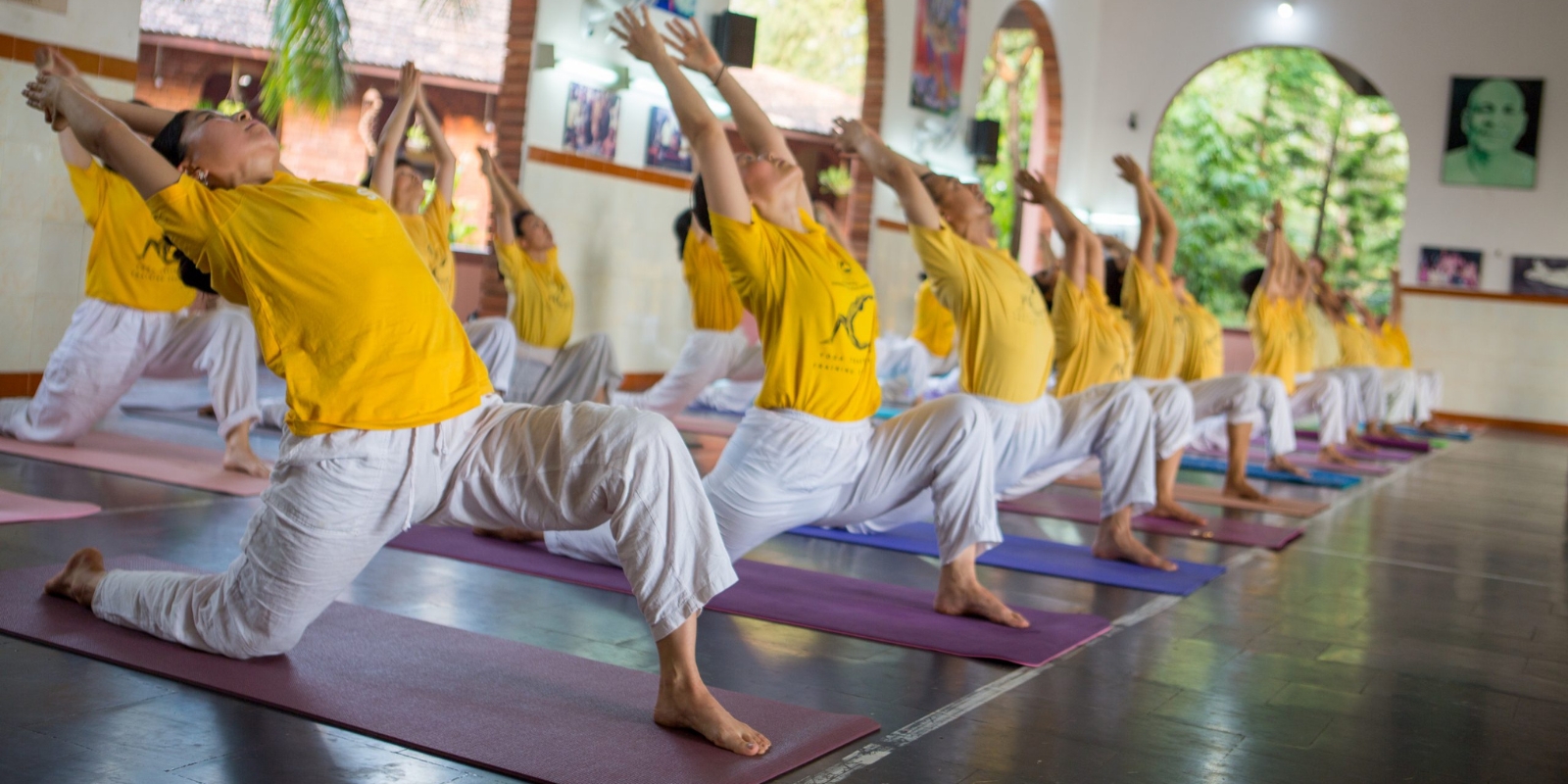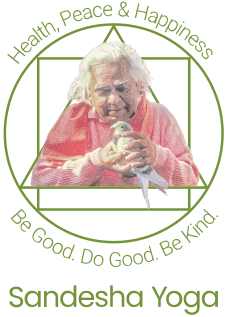Yoga Teachers’ Training Course
Develop the skills to teach yoga asana, gaining a solid grounding in the classical yogic tradition, at the same time deepen your spiritual connection to yoga and open yourself to profound inner transformation. The Teachers’ Training Course (TTC) is a four-week intensive residential course, based on the ancient gurukula system of India where teacher and student live together. You will be in a traditional Ashram and closely interact with our experienced and dedicated teachers and staff who themselves are immersed in the yogic lifestyle. Connect to an ancient teaching lineage (guru parampara), passed down from guru to disciple through thousands of years, the curriculum is extensive and covers both theory and practice.

In these four-weeks you will establish a firm foundation of discipline that promotes physical, mental, emotional, and spiritual growth while building a strong base from which to teach others naturally and with confidence. The Course was designed by Swami Vishnudevananda in 1969 with the vision to not only develop successful yoga professionals but to also spread peace in the world through them. A sincere desire to learn and openness to yogic techniques is required – a basic knowledge of yoga postures and philosophy is preferred, but not essential.
Upcoming Courses
Canada
Thailand
India
Refund Policy
If you wish to cancel your registration before the start of the course, the original payment will be refunded less:
- $150 CAD (more than 3 months from course start date)
- $200 CAD (less than 3 months from course start date)
- If you contact us before the course begins in order to transfer to another teacher training course, a $300 CAD administration fee will be charged. Some restrictions may apply, and this change can only be done once.
Once the course starts:
- If you do not show up and do not contact us, no refund will be issued.
- If you decide to leave during the first 5 days of the course, we will refund your original payment less an administration fee of 25%.
- No refunds will be issued after the 5th day of the course.
- Students leaving the course before completion, are required to return manual and uniforms.
- Full refund of the course fee paid will only be granted where SYVC has had to cancel the course / programme.

